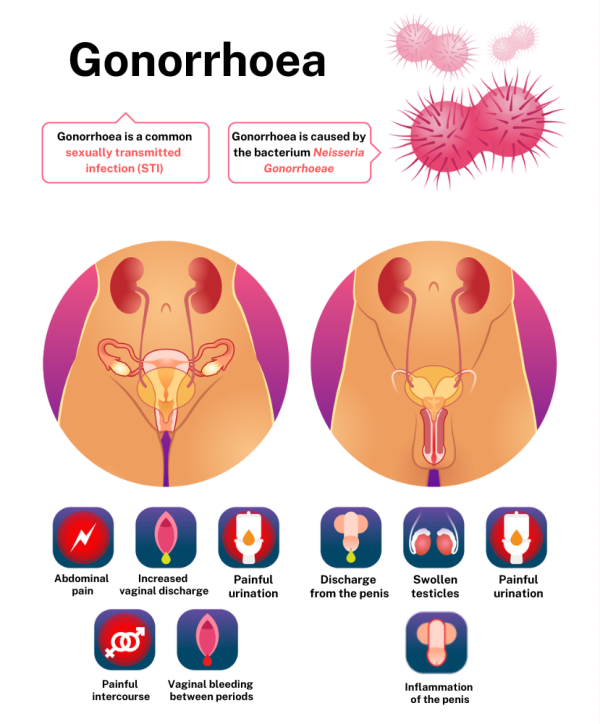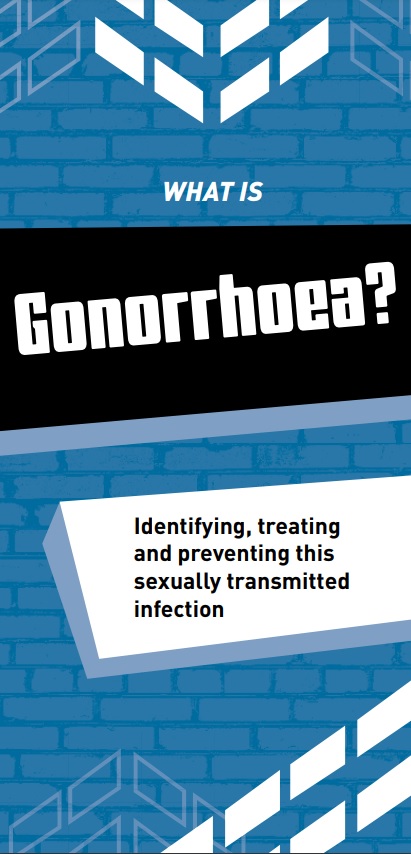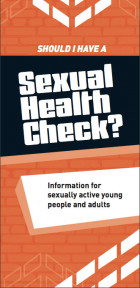Gonorrhoea is a sexually transmitted infection common in people under the age of 30. It’s a bacterial infection caused by the bacteria Neisseria gonorrhoeae. It’s mostly caught from sexual contact. It can cause infection in your vagina, urethra (where you pee from), rectum, throat and eyes.
Love our website? We do too. Did you know we're a charity? Donate now to help us keep it free for everyone in Aotearoa New Zealand.
Gonorrhoea
A common sexually transmitted infection (STI)
Key points about gonorrhoea
- Gonorrhoea is a sexually transmitted infection (STI) that's very common in people under 30 years of age.
- It's a bacterial infection caught by having sexual contact with an infected person. There may be no symptoms.
- If you have gonorrhoea, you need to tell anyone you've had sex with in the last 3 months to get tested and treated. It's easily treated with antibiotics.
- Use condoms or avoid sex for 7 days after you and your partner(s) have been treated so you don’t get infected or pass the infection on.
- Use a condom every time you have sex, then you're much less likely to get gonorrhoea.

Gonorrhoea is almost always transmitted through sexual contact.
- You can get gonorrhoea by having unprotected vaginal, anal or oral sex with someone who has gonorrhoea.
- Gonorrhoea can also be spread through other sexual practices such as mutual masturbation or fingering.
- Gonorrhoea may be transmitted from mother to baby during birth. The baby may develop eye or joint infections as a result.
- If you use a condom every time you have sex you're much less likely to get gonorrhoea.
Some people with gonorrhoea don’t notice symptoms. It's more common for males than females to have symptoms with a gonorrhoea infection.

Image credit: Depositphotos (amended)
Females
Only about 2 in 10 females will have signs or symptoms with gonorrhoea. If you do, these can include:
- unusual vaginal discharge
- irregular bleeding (after sex, and/or in between periods)
- discomfort when passing urine (peeing)
- pelvic pain (especially during intercourse).
Males
About 9 in 10 males with gonorrhoea are likely to have symptoms, and these usually occur within 2 to 10 days after infection. Symptoms may include:
- urethral discharge from your penis (thick yellow or white discharge)
- pain or discomfort when passing urine (peeing)
- redness around the opening of your penis
- pain and swelling in your testicles.
People of all genders
You can have gonorrhoea:
- in your rectum (bottom) if you have anal sex – this may cause rectal discharge, pain, discomfort, or changes in bowel function (your poo), but often there are no symptoms
- in your throat if you have oral sex – this is likely to have no symptoms
- in your eye if infected sexual fluids come into contact with the surface of the eye – this can cause redness, discharge, and, if left untreated, may threaten your vision.
The best way to find out if you have gonorrhoea is to have a sexual health check-up.
- If you have a vagina you'll need a vaginal swab test. You may also need a throat or anal swab depending on the type of sex you've had.
- If you have a penis you'll need a urine (pee) test and sometimes a swab test from the urethra (the opening in your penis). Throat and anal swabs might be needed depending on the type of sex you've had.
- Everyone who has symptoms will need to be examined in case the symptoms are caused by something else.
Gonorrhoea is treated with antibiotics. A single dose of an injection called ceftriaxone and a single dose of tablets called azithromycin usually cures gonorrhoea.
- If the infection is more serious, you may need to take tablets for up to 2 weeks.
- Often chlamydia and gonorrhoea occur together, so you may be given treatment for both infections.
Carefully follow your healthcare provider's advice about medication. Even if you feel better, finish all the antibiotics. Your symptoms may improve in a few days but the bacteria may still be in your body.
Use of condoms during the treatment period
If you receive single-dose treatment, you should use a condom for 7 days after treatment and until 7 days after your partner has been treated. This is to prevent getting re-infected or passing the infection on to someone else.
Follow-up appointments
You should have a follow up appointment after 1 week, in person or by phone, with the healthcare provider who treated you. This is to check your symptoms and your risk of reinfection.
It's also recommended you go back to your healthcare provider after 3 months for a final check-up to make sure the infection is completely cleared and that you haven't been re-infected. If your symptoms don’t go away with treatment go back to your healthcare provider for review. Further testing to make sure you're cured isn't routinely done unless you had gonorrhoea in your throat, or you're pregnant.
If you have had sex without a condom with your sexual partner(s) it's very likely they're infected with gonorrhoea. It's important they have a sexual health check and treatment for gonorrhoea, even if they have no symptoms and even if they have a negative gonorrhoea test.
If you are diagnosed with gonorrhoea, it's important to tell anyone you have had sex with within the last 3 months to get tested and treated (if needed). Giving them some written information about gonorrhoea(external link) may help or you could share this page with them.
Left untreated, gonorrhoea can cause serious and permanent damage.
- Gonorrhoea can spread to your uterus and fallopian tubes and cause pelvic inflammatory disease (PID), which can cause infertility or ectopic pregnancies (where the pregnancy develops in your fallopian tubes instead of your uterus). It can also lead to chronic pelvic pain. It may also lead to poor pregnancy outcomes such as premature rupture of membranes or neonatal conjunctivitis.
- Gonorrhoea can cause a painful condition in the tubes attached to your testicles (balls). In rare cases, this may cause you to be sterile and prevent you from being able to father a child.
- Rarely, gonorrhoea may spread via your bloodstream to cause severe joint pain and infect other internal organs and skin.
Gonorrhoea and other STIs can be successfully prevented by using appropriate contraception and taking other precautions, such as:
- using male or female condoms every time you have vaginal sex, or male condoms during anal sex
- using a condom to cover your penis, or a latex or plastic square (dam) to cover the female genitals, if you have oral sex
- not sharing sex toys, or washing them and covering them with a new condom before anyone else uses them.
Gonorrhoea(external link) Health New Zealand | Te Whatu Ora
Gonorrhoea(external link) Sexual Wellbeing Aotearoa, NZ
Gonorrhoea(external link) Healthy Sex, NZ
Gonorrhoea(external link) Just the Facts, NZ
Brochures
What is gonorrhoea?(external link) HealthEd, NZ, 2022
Should I have a sexual health check?(external link) HealthEd, NZ, 2023
References
- Gonorrhoea(external link) STI Management Guidelines, NZ, 2021
- Gonorrhoea(external link) Health New Zealand | Te Whatu Ora
- Emerging issues in the treatment of chlamydia and gonorrhoea(external link) BPAC, NZ, 2019
- Gonorrhoea(external link) Just the Facts, NZ
Emerging issues in the management of chlamydia and gonorrhoea(external link) BPAC, NZ, 2019
Gonorrhoea(external link) STI Management Guidelines, NZ, 2021
Treatment of sexually transmitted and other genital infections(external link) BPAC, NZ, 2009
Anorectal syndromes(external link) STI management guidelines, NZ, 2021
Brochures

HealthEd and Ministry of Health, NZ, 2022
Credits: Healthify editorial team. Healthify is brought to you by Health Navigator Charitable Trust.
Reviewed by: Katie McCullough, Nurse Practitioner, Clinical Lead, STIEF
Last reviewed:






